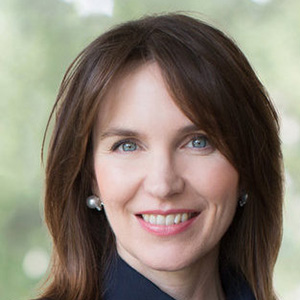





Martin Hutterli, winner of the NZZ Prize EMBA 61
Martin, how are you doing after the summer without the EMBA?
I’m doing very well; I was able to consciously enjoy my time in the summer because the stress of the EMBA was gone. It was really nice to have a bit more time for my family again. But I have to be honest and say it was two-fold. Of course, I was happy about the time I had gained, but I also kept thinking about the EMBA. You do miss it after such an intense time; something is missing. So, there was also a bit of melancholy from time to time.
You mention the intensive EMBA time; what do you miss most?
For me, there were two things in particular. Certainly, breaking away from everyday working life, consciously being away – physically and mentally. Creating a distance from everyday life and being able to engage with and be inspired by new topics for a week. I have always looked forward to these components and found them very enriching. The second is being together with the class, some friendships have developed, and a very strong network has been created. I really appreciated these two aspects during these very formative one and a half years.
 How did you experience the evening of graduation? At what point did you realise that you could win the NZZ Award?
How did you experience the evening of graduation? At what point did you realise that you could win the NZZ Award?
I think the ceremony was the emotional highlight of the EMBA journey for all of us. This final point was associated with a lot of pride in having made it, gratitude for having been able to make this journey, but also relief that this intensive chapter is now over.
I knew that I had been nominated for the NZZ Award. Naturally, I gave it some thought. But until my name was called, I didn’t assume that I would win. It must be said that we were a very competitive class (laughs). So, I assumed that someone else would win the race. In this respect, I was very surprised by the award and was of course doubly pleased to receive the NZZ prize in addition to my diploma. I felt it was a great honour and appreciation.
How did you come up with the topic for your thesis?
It was clear to me that I wanted to delve deeper into a topic from my professional environment. I was lucky that my employer supported me very generously with the EMBA and it was clear to me that I also wanted to create added value for my employer and my working environment with my work. During the course of the EMBA, I then focussed on a strategic topic with a focus on pensions. I had the advantage that I was very close to the topic and had a very clear idea of how I wanted to approach it, what I wanted to focus on and what I wanted to achieve with it. In addition, I was very well supported and supervised by Prof Dr Hato Schmeiser at HSG.
Our jury rightly said that the topic of pension provision and prosperity in old age is one of the megatrends of our time. Did the great social relevance of the topic make writing the thesis easier or more difficult? Great relevance always means a lot of opinions, input, etc.
For me, the great relevance made the approach easier because there are many current studies and literature on the topic of pension provision. If you take on a topic that is less in the spotlight, I think this is more difficult.
The starting position was also similar regarding behavioural economics: I had a lot of very good literature available as a basis relatively quickly. For me, the exciting thing and the appeal of the work was to link the topic of pension provision with behavioural economics and to formulate concrete recommendations for practical action derived from this. There are still relatively few studies and papers on precisely this combination.
In your work, you show that certain risks are misjudged and that this is human to a certain extent. Can you try to explain?
The aim of my work was to explain why people act the way they do. Many people smoke, even though we all know that smoking is unhealthy. It’s the same with pension provision: most people know that it’s important to make private provision, but very few do it. My aim was to find out why people don’t do something even though they actually know that they should do it.
Do you have the feeling that different generations also approach the topic of retirement planning differently or are the behavioural patterns always similar?
That’s a good question. Basically, I think that many cognitive processes are similar regardless of the generation. In my opinion, however, there are generational influences, for example in political and social developments. It is definitely the case that private pension provision will become even more important for the next generation than it has been in the past. Previous generations often had enough state benefits, but this will no longer be the case for us and future generations. I also see another change in the perception of who is responsible for old-age provision. There are studies that show exactly that: The older generations have a greater sense of personal responsibility. They see themselves as being much more responsible for their own pension provision. The younger generations tend to believe that the state is primarily responsible for pensions, which is of course a misconception due to the development of social security schemes.
What advice would you give your fellow alumni when it comes to retirement provision?
Clearly two things. Firstly, take care of it and secondly, take care of it early enough. Every year you wait is de facto a year lost. If you take this to heart, you’ve already done a lot of things right.
If you could add another chapter to your work, what would it be and what would its focus be?
Looking back, I can say that I am very satisfied with my work and that I did a lot of things right. From the early start to the support set-up, I would do a lot of things exactly the same again. The only thing I would change or add is the qualitative survey. This could have been expanded to include other financial institutions and people from sales. This might have provided new insights or further consolidated existing findings.
I hear you are still in the middle of the topic. To what extent is the work or its content part of your current work?
The topic has actually been temporarily put on the back burner in my current day-to-day work. But it will be taken up again next year. I am convinced that one or two of the measures discussed and recommended in the work will be taken up again.
Finally, a link back to the EMBA programme. If you could take a course from your degree programme again tomorrow morning, which one would it be – and why?
Oh, that’s a difficult question and one I must think about carefully. Every course has given me something and taught me something, as we had so many exciting lecturers and guest lecturers. But if I had to choose one, I would like to take the “Negotiation and Conflict Management” course with Dr Klaus Lassert again, in addition to the “International Management” module in Israel. It was one of the liveliest courses with lots of practical and interactive exercises. I learnt a lot there, both for my job and my life. After all, you’re always negotiating, whether in the office or at home with the children.
Martin Hutterli wrote the best thesis on the EMBA 61 programme and won the NZZ prize. Hutterli has spent his professional career in banking, first at Credit Suisse and then at St. Galler Kantonalbank, where he has held various positions for over ten years. Hutterli is currently Head of Divisional Development PB.
 EMBA HSG Impact, News
EMBA HSG Impact, News
 EMBA HSG Impact
EMBA HSG Impact
Do you have any questions or require further information? We will be happy to help.